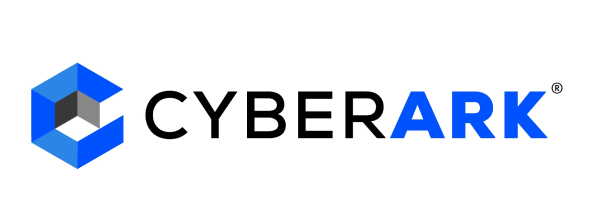
Introduction to Cybersecurity
In today’s interconnected world, the digital landscape is both a land of incredible opportunity and a minefield of potential threats. For businesses, big or small, the question is no longer if you’ll face a cyber threat, but when. From sophisticated ransomware attacks that lock down your entire operation to subtle phishing attempts designed to steal sensitive data, the dangers are real and constantly evolving.
This isn’t just about losing a few files; a successful cyberattack can cripple your finances, damage your reputation beyond repair, and even lead to legal repercussions. So, how can you stay safe when navigating this dangerous terrain? The answer lies in robust cybersecurity services.
Why Cybersecurity Matters for Every Business
Whether you’re running a startup or a multinational corporation, cybersecurity is critical. One attack can compromise your data, damage your reputation, and drain your finances. And with remote work becoming the norm, businesses are more vulnerable than ever before.
The Cyber Threat Landscape in 2025
The methods used by cybercriminals have become more advanced and targeted. These days, some of the most common risks that businesses face are:
- Phishing Emails: Deceptive emails tricking employees into revealing passwords or clicking malicious links.
- Ransomware: Malicious software that encrypts your data and demands payment for its release.
- DDoS Attacks: Distributed denial-of-service attacks flood your systems and take your website offline.
- Insider Threats: Employees or contractors intentionally or unintentionally causing data breaches.
- Cloud Vulnerabilities: Insecure configurations and access management in cloud environments.
- Zero-Day Exploits: Attacks launched before a software provider has issued a patch.
Why Your Business Can’t Afford to Skimp on Cybersecurity
Think of cybersecurity as the digital equivalent of insurance, but far more proactive. While insurance helps you recover after a disaster, cybersecurity aims to prevent it from happening in the first place. Here’s why it’s non-negotiable for every business:
- Financial Ruin: The cost of a data breach can be astronomical, encompassing recovery efforts, legal fees, regulatory fines, and lost revenue due to downtime.
- Reputational Damage: Trust is hard-earned and easily lost. A cyberattack can erode customer confidence, making it difficult to regain their business.
- Operational Disruption: Imagine your systems grinding to a halt, unable to process orders, communicate with clients, or access critical data. The impact on productivity is immense.
- Data Privacy & Compliance: With strict regulations like GDPR and various national data protection laws, failing to protect sensitive information can result in hefty penalties.
- Loss of Intellectual Property: Your trade secrets, proprietary algorithms, and customer lists are invaluable. A cyberattack can lead to their theft, giving competitors an unfair advantage.
Common Cyber Threats Businesses Face
Understanding the cyber threats is the first step in defending your business.
Phishing Attacks: Phishing is one of the most common and dangerous threats. Hackers deceive staff members into clicking on dangerous websites or disclosing credentials.
Ransomware: Ransomware locks your files and demands payment to restore access. Operations may be severely disrupted for days or weeks by these attacks.
Insider Threats: Not all threats come from the outside. Employee dissatisfaction or negligence may inadvertently put your company at risk.
Data Breaches and Information Theft: Hackers target personal and financial information, and once they get it, the damage is often irreparable.
Core Components of Cybersecurity Services
To effectively protect your business, cybersecurity services must be multi-layered.
Network Security: This includes firewalls, intrusion prevention systems, and encryption to protect data in transit.
Endpoint Protection: Laptops, smartphones, and tablets are all endpoints that hackers target. Endpoint protection ensures these devices are secure.
Cloud Security: As more businesses move to the cloud, securing these environments has become critical.
IAM: Identity and Access Management helps ensure that only authorized individuals have access to your systems and sensitive data.
Advanced Cybersecurity Solutions
Threat Intelligence and Monitoring: These services track potential attacks before they happen, allowing businesses to be proactive rather than reactive.
Vulnerability Assessments and Penetration Testing: Regular penetration testing helps identify and fix weak points in your network before hackers exploit them.
Security Information and Event Management (SIEM): SIEM tools analyze data across your systems to detect and respond to threats in real time.
Building a Strong Cybersecurity Culture
Employee Training and Awareness
Employees are often the weakest link. Regular training can drastically reduce the risk of human error.
Creating Strong Password Policies
Using weak passwords is similar to leaving your front door open. Implement policies that require complex, unique passwords.
Qualities of a Cybersecurity Service Provider to Consider
Choosing the right partner is just as important as the tools they offer. Look for cybersecurity service providers that offer:
- 24/7 Monitoring: Cyber threats can strike any time — your protection shouldn’t sleep.
- Proven Experience: Ask for case studies or client references.
- Customizable Solutions: One size doesn’t fit all. Your cybersecurity plan should match your business size and risk level.
- Regulatory Compliance Support: Whether it’s GDPR, HIPAA, or ISO 27001, your provider should help you stay compliant.
- Incident Response Capabilities: In case of an attack, quick action is crucial. Your provider should have a clear, tested response plan.
Taking Action: Secure Your Business Today
The threat landscape is constantly evolving, but so are the solutions available to protect your business. Investing in professional cybersecurity services isn’t an expense; it’s a strategic imperative. It’s about safeguarding your assets, maintaining your reputation, and ensuring the long-term viability of your operations.
Don’t wait until it’s too late. Assess your current security posture, understand your unique risks, and partner with reputable cybersecurity experts who can tailor solutions to your specific needs. Your business, your data, and your peace of mind are worth protecting.
FAQs
1. What is the most common cyber threat for businesses?
Phishing attacks are currently the most common and effective way hackers target businesses.
2. How can small businesses afford cybersecurity services?
By opting for managed security services or scalable solutions, SMBs can get enterprise-level protection on a budget.
3. What is the difference between antivirus and cybersecurity services?
Antivirus protects individual devices, while cybersecurity services protect your entire IT environment, including networks, cloud, and endpoints.
4. How often should businesses conduct security assessments?
At least twice a year, but quarterly assessments are recommended for high-risk industries.
5. Are managed security services worth the investment?
Absolutely. They provide continuous protection, often at a fraction of the cost of maintaining an in-house security team.
6. How much do cybersecurity services typically cost?
Costs vary depending on the services, company size, and risk level. Some services (like managed security) are billed monthly, while others (like penetration testing) may be one-time fees. Bundled packages are often more cost-effective.
7. What is MDR (Managed Detection and Response)?
MDR is a fully managed cybersecurity service that offers 24/7 threat monitoring, detection, investigation, and response. It’s ideal for businesses that don’t have an in-house security team but need enterprise-grade protection.








